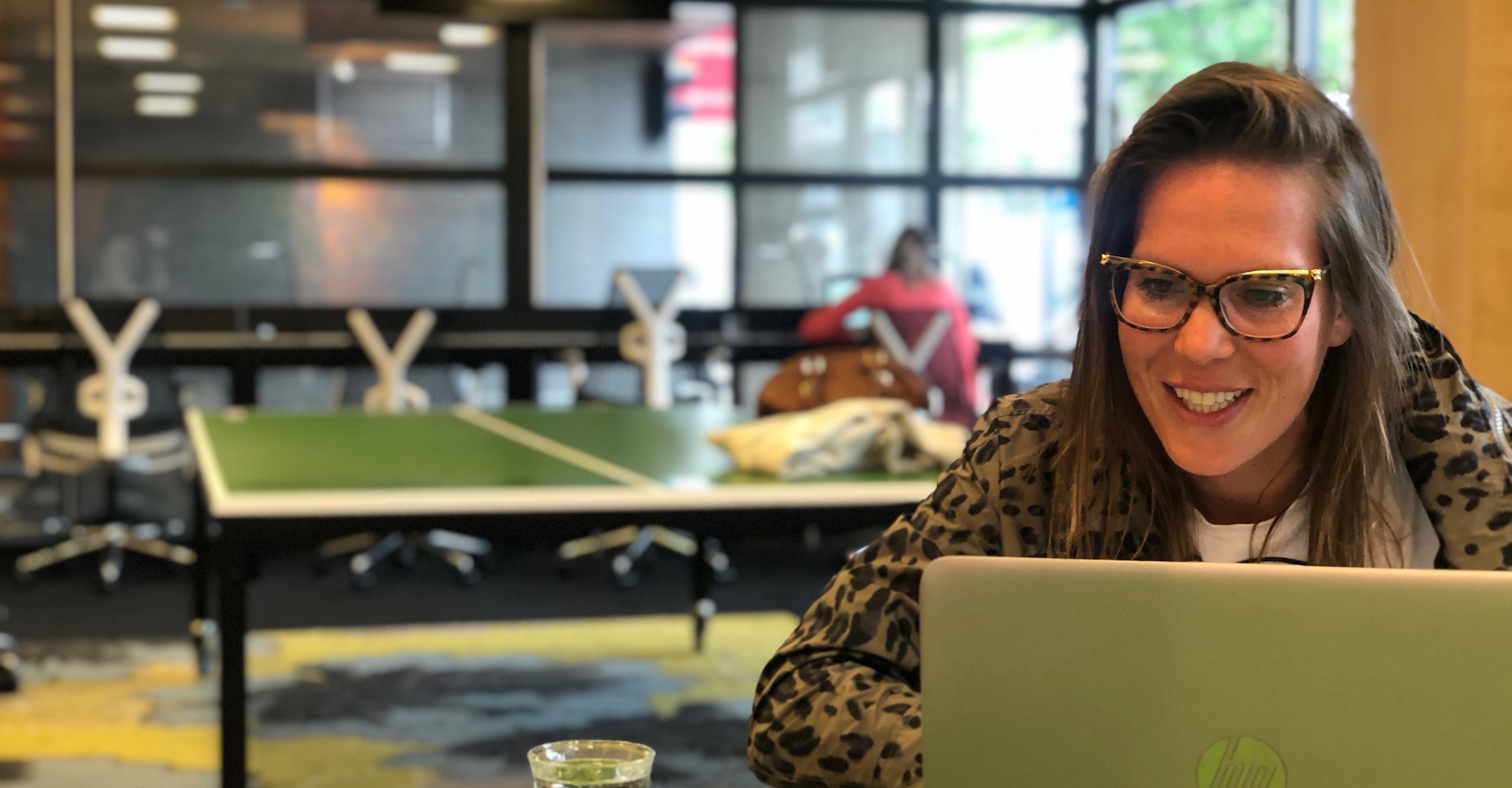Small and medium-sized enterprises (SMEs) in Limburg are hit hard by the corona crisis. UMIO | Maastricht University came to the rescue of entrepreneurs by organising an online hackathon in collaboration with MKB-Limburg, the association for SMEs in Limburg. An army of 118 talented and creative master’s students from Maastricht University searched for viable innovative solutions for companies in the event sector (MECC Maastricht), tourism (Maastricht Marketing) and retail (Riviera Retro).
“A hackathon provides a means to accelerate innovation”, says Sabine Janssen. As head of UMIO’s Service Science Factory (SSF) she coordinated the online hackathon. “A hackathon is a design sprint in which solutions are found for business challenges with co-creation. That makes a hackathon ideal for helping companies during the corona crisis, but certainly also for the period after that. After all, many companies need an adapted business model to survive in the post-corona era.”
Interesting and accessible challenges
In the beginning of April, entrepreneurs could submit their business challenge via the MKB-Limburg Ondernemersplatform (platform for entrepreneurs). The hackathon organisation then selected three broadly supported challenges in the events, tourism and retail sector. Janssen: “Within those sectors, the challenges of MECC Maastricht, Maastricht Marketing and Riviera Retro proved to be the most suitable, because of the added value of students’ perspectives. They can easily relate to the relevant contexts and see many best practice cases around them.”
Design thinking
Spread over 24 teams, the 118 master’s students started on 22 April with the preparations for the hackathon, which took place a week later. How has the sector been affected? Who is the customer? What are the main needs and challenges of the organisation and the customer? These and other questions were examined in this preparatory phase. For each challenge, the students had to develop a customer-oriented and practical solution with the main question ‘How can we let business flourish again, during and after the relaxation of the lockdown, if the one and a half meter economy is the new reality?’
“During the hackathon day, the students worked according to the design thinking methodology”, Janssen explains. “This methodology helps to approach challenges from the perspective of the customer and the perspective of the organisation. The students also looked at the challenge through glasses of opportunity. How could the business model be adapted so that the company emerges from this crisis better, stronger and faster? Fresh, innovative and practical ideas were further specified and co-created with the challenge owners. The students were supervised online by five coaches from the Service Science Factory (SSF) and two marketing teachers from Maastricht University’s School of Business and Economics (SBE). In addition, the students could enter into a 1-on-1 conversation with the challenge owners in the afternoon, so that they could validate their assumptions and solutions and build on a solution together with the owners.”
Many innovative solutions
After the hackathon day, the students had a week to concretise their solutions based on the input of the challenge owners and to work on the storytelling of their pitch. After the presentations, the so-called student vote took place whereby the teams could vote among themselves on the different solutions. This resulted in a top two in each category. All entrepreneurs of MKB-Limburg and friends of UMIO could then vote on these solutions, which led to one winning idea per category.
The hackathon organisation and the challenge owners were impressed by the many innovative solutions that were submitted. The challenge of manager Jop Thissen of MECC Maastricht was to organise an attractive Limburg Leads event after the summer, despite all the limitations of the one and a half meter society. “One of the proposed solutions was to develop an app with which you can already link the entrepreneurs based on their interests”, says Thissen. “As a result, they will start looking for each other instead of just walking around in the hall. You can also indicate in the app where it is busy and where you should stay away for a while. A walking route like in IKEA was also a very good idea. Everyone can imagine that. But the most original idea was the goody bag. You hand them out upon entry. This includes, for example, a hand soap with logo and a mouth mask. That gives a positive feeling to the visitors because getting a gift is always fun.”
Inspiration for entrepreneurs
“It was unique and exciting at the same time to establish effective online collaboration in a hackathon of this size”, concludes Sabine Janssen. “Overall, I like the fact that this outside-in method has provided fresh, customer-oriented solutions with which the challenge owners can get to work.
I would like to thank MKB-Limburg as a partner in this hackathon, and in particular project leader Karin van der Ven of the MKB-Limburg Ondernemersplatform for making this collaboration possible.”
More information
Do you want to know more about the concept of hackathons and what it can do for your organisation? Then please contact Sabine Janssen at the Service Science Factory (SSF) via s.janssen@maastrichtuniversity.nl.



